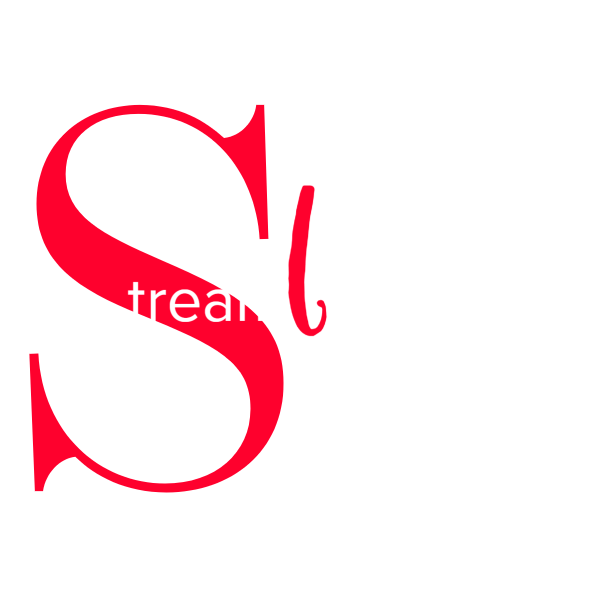Plays a huge role on market expansion and building a strong brand
LOGISTICS SERVICES

LOGISTICS SERVICES
The extreme importance of storing and transporting goods for your business
Logistics represent a huge part of your business and play a vital role in delivering a good service to your customers. Logistic operations are tightly related to business costs, revenue and customer satisfaction.
Simply put, logistics takes care of delivering company`s goods to the consumer. Easier said than done, it is actually a complex process of transporting and coordinating resources, such as goods, materials, inventory, equipment and even people, from storage locations to a desired destination. The logistic process needs a lot of planning, specialized software and personnel to execute an efficient storage and transportation of goods, in order to meet customers` demands for timely and cost-effective delivery.
The importance of logistics can be summed up really straightforward – if your products or services are not moving, you can’t have a business profit. Successful logistics execution translates into your business as lower costs, high profitability rates, good inventory control, improved customer experience and satisfaction.
Logistics Benefits
Evolve and revolutionize your business through sustainable logistics execution
-
-
Provides end-to-end visibility and helps meet the customers` demands
-
Acquires better control of resources and business profitability
-
Resonates immensely on good customer experience and product development

WAREHOUSING & STORAGE
Choose the right warehouse and storage facilities for your business
Warehousing and storage are a basic feature of the logistic process, but a very crucial one. They provide the actual storage of goods, equipment, materials and resources for an organization and should be orderly organized in a way to make the logistics easy to manage and execute.
There are some essential points you need to check when choosing the right warehousing and storage accommodation for your business. We work with businesses throughout multiple industries and know that not any warehousing and storage space fits everybody. We will make sure to facilitate you with a functional, appropriate and efficient warehousing and storage with maximum available space, specialized software and equipment, expert help, while following the best safety guidelines.
TRANSPORTATION MANAGEMENT
Amplify your supply chain through the best logistics system
Transportation management is a key component in your supply chain and the propeller that gets logistics operating successfully. It takes a proper setup of a logistics software system that navigates and organizes the multi processes of movement of physical goods by a combination of transportation modes. Transportation management software (TMS) ensures an accurate and timely distribution of goods by optimizing the whole transportation operation, while simultaneously reducing delivery costs for both businesses and customers.
Today TMS has evolved to a cloud based service with real-time visibility, making it suitable for even smaller businesses. Combined with the unstoppable growth of eCommerce, the demands of transportation management are surging. TMS is directly linked to reducing the complexity and improving the efficiency of the logistics. It can help you with optimizing the loads as well as delivery routes, tracking freight on a local or a global route, automating major time-consuming tasks, such as trade compliance documentation and freight billing.
INFRASTRUCTURE MANAGEMENT
Proactively manage all business infrastructure for growth and effectiveness
Infrastructure management focuses on the coordination and management of all technical and operational elements of a business organization, including equipment, buildings, facilities, hardware and software, data, policies and processes. The main goal of infrastructure management is to increase the business productivity and efficiency. For managerial and supervisory purposes, infrastructure management is usually divided into storage, building, networking, security and systems management.
Having an established infrastructure management system (IMS) guarantees to your stakeholders and customers that your business is reliable. It also sets a clear system for how your organization is operating, maintaining it as productive as possible and keeping it closely aligned to your goals.
IMS`s biggest benefit is that it streamlines the daily business functions and operations, simplifying them, monitoring, optimizing and adapting their execution. In addition, IMS is relatively linked to improving your customers` satisfaction, reducing cost but expanding your business performance.

INVENTORY MANAGEMENT
Stock, track and transport your goods with a proven inventory software
Any business which holds inventory knows that inventory management is an essential part of the supply chain. Put in simple words, inventory management is responsible for the tracking of the goods from the manufacturer to the warehouse, and from there – to the end point of sale. Its goal is to make this process as smooth and as efficient as possible, moving the right products to the right places. This happens with the help of an inventory software, which provides seamless inventory visibility, organization and management features in order to attain fulfillment of customer orders, reduce shipment turnaround and minimize stockouts and oversells.
The main inventory management objectives are tightly connected to boosting cash flow, reducing the purchase cost of goods, optimizing the storage cost, maintaining sufficient stock balance and preventing dead stock or perishability.
Inventory is one the most important assets of a business organization and inventory management is the converging supply chain element. It helps a company to find balance between under and overstock and the actions needed to minimize spoilage, theft, damage, leading to sinking profitability and even unhappy customers.
PROCESS MANAGEMENT
Securely managing the logistics processes in your supply chain
Process management in logistics is involved in the movement and storage of the items throughout the supply chain. It is also known as supply chain management (SCM). SCM is the system coordinating everything between all the partners in the logistics network – sourcing, production, transportation, storage and sale.
A structured and well-planned SCM system actively streamlines the company’s supply chain processes, maximizing customer value and acquiring a sufficient competitive market advantage. Good SCM helps your business to cut excess costs, while providing a fast and punctual delivery of products to your customers.
Achieving a productive and streamlined SCM is crucial to your business as it is strongly related to your economic objectives. For example, having a good grip on the manufacturing processes improves your product quality, working for building a strong brand with minimal risk of recalls or lawsuits; and controlling the shipping procedures boosts customer service and avoids stock shortages or oversupplies. Overall, an efficient SCM helps you improve your profit margins, grow profitability and gain customer loyalty.
FREIGHT FORWARDING
Execute your freight forwarding through a trusted partner
Freight forwarding is the actual process of shipping goods from one place to another by a carrier in all transportation means – air, rail, road or marine. It is a type of mediation between the company who offers shipment and the final point of distribution – from a manufacturer to a warehouse, market or a customer. We contract with multiple carriers and can execute freight forwarding via all types of transportation.
Delegating your shipment operations to a trusted freight forwarder has its potential benefits. The main objective here is to acquire a timely, proficient and cost-effective transportation of goods, while maintaining the load in pristine condition throughout the whole shipping operation.
As experts we are able to negotiate tariffs, have fluent knowledge in the shipping requirements by air, land, rail and sea. We are acquainted with the customs regulations and have the capacity to ship locally and globally, using the latest information technology.
ORDER FULFILLMENT
Outsource the order fulfillment for your e-commerce business
Order fulfillment represents the part of logistics where an order is assembled, packed and shipped off to the customer. It also includes some supporting processes before the actual shipping, that include inventory management, supply chain management, order processing, quality control, customer support and order returns.
Evidently, efficient order fulfillment involves coordination with multiple logistics departments as well as outside parties. The order fulfillment process starts when an order is received and ends when the goods are in the customer’s hands. When executed perfectly, order fulfillment will increase your profitability, build a loyal customer base, create a strong brand image and help you expand your market.
Order fulfillment can be considered the essence of every goods-selling business, as the majority of its profits come from actual sales of merchandise to other businesses or individuals. We can help you run order fulfillment cost-effectively and in a timely manner, by implementing the best ERP system, integrated with your vendors and suppliers, optimizing your inventory management and order picking strategy.

CARRIER MANAGEMENT
Effectively monitoring and managing carrier performance for you
As a part of the logistics process, carrier management is needed to monitor, oversee and control the transportation providing companies and their activities, costs and performance. Modern carrier management is carried out via specialized software, supports real-time supply chain visibility and awareness, as well as improving the decision-making processes and cooperation between the transportation carriers.
Implementing a carrier management system (CMS) in your TMS platform will allow you to manage and assess the carrier performance, empowering you to manage the entire shipment cycle. Not only this, but CMS has the capacity to adapt any flexible variables along the transportation process, such as fuel price changes, equipment utilization, federal regulation, contract negotiations, delivery time and other critical data.
Carrier management platforms are suitable for any industry and can be adjusted to various business types or carriers. It provides you with a great competitive advantage, creating an efficient, data-based and KPI-aligned transportation process.
CUSTOMS MANAGEMENT
Providing 24/7 customs management all over the globe
Customs management represents the operations and activities needed to accommodate the global customs regulations and procedures into a common workflow. This wholesome approach gives a company the possibility to incorporate similar, systematic and simplified processes, aligned accordingly to regional requirements and customs regimes.
Alike all the other logistics processes, customs management has its own software solutions, that enables the businesses to automate and standardize all import and export procedures with the customs. This comes with the immense benefit of shipping goods for a shorter period of time, reducing the costs for handling and customs transactions and faster releasing of the goods from the customs authorities.
Implementing a customs management software in your TMS platform will allow you to further streamline and automate the shipping process, bringing you one step ahead of the competition and improving your logistics KPIs.
THIRD-PARTY LOGISTICS
Partner with a skilled provider to manage your eCommerce supply chain
Third-party logistics (3PL) describes the outsourcing of logistic services to a specialized provider, that involves warehousing, transportation and even supply chain management, fulfillment and other logistics operations to commercial and industrial clients. 3PLs are used by lots of businesses around the world who rely on 3PL providers to offer end-to-end management of a specific logistics service.
Businesses outsource various logistics services to 3PL companies mainly for two reasons: they don’t have the resources to do a certain type of logistics operations by themselves or the 3PL offers a superior solution that provides better and reliable service that maximizes profitability for a business. The ultimate benefits of using a 3PL in your logistics are to save time and money, leverage industry expertise and expand your market reach, while you can focus on product development, marketing and customer satisfaction.
We, at Streamlined Efficiency, have partnered with the best 3PL companies with established and proven records of proficiency and expertise, to ensure cost-effectiveness and better logistic execution.
